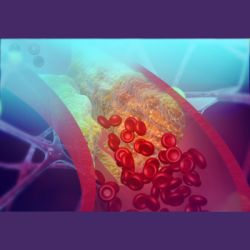Physician burnout is a significant issue in healthcare worldwide, and radiology burnout rates are ranked high compared to other specialities. A new study assessing radiologist and radiology trainee burnout in Canada finds above average burnout symptoms with regard to both emotional exhaustion and depersonalisation.
"Future research directions include exploring etiologies of burnout and implementation of treatment strategies based on these identified problem areas," according to the study to appear in the Canadian Association of Radiologists Journal.
Nearly half of the world's physicians experience some symptoms of burnout. Aside from leading to poorer patient care and physician mental health, burnout is estimated to cost the Canadian healthcare system of approximately $213.1 million annually.
"To our knowledge, ours is the first study of burnout symptoms of Canadian radiologists and radiology trainees," wrote Nanxi Zha, MD, Department of Radiology, McMaster University, Hamilton, Ontario, Canada, with co-authors.
For this study, Dr. Zha and co-authors sent an online survey to all eligible members of the Canadian Association of Radiologists in January 2018. The survey used the abbreviated 7-item Maslach Burnout Inventory (MBI) that characterises burnout symptoms into personal accomplishment, emotional exhaustion, and depersonalisation. The anonymous survey was hosted on SurveyMonkey for one month. A reminder email was sent halfway through the survey period.
Overall, 262 of 1,401 invited radiology trainees and radiologists completed the survey (response rate 18.7 percent). With regard to personal accomplishment, the authors observed that (1) burnout in this domain improved with increased years worked and (2) milder symptoms were observed in community radiologists compared with their academic counterparts.
In comparison with other studies of radiologist burnout, the authors found mild burnout symptoms in personal accomplishment, but severe symptoms in the burnout domains of both emotional exhaustion and depersonalisation. This suggests that the Canadian radiologists, despite experiencing more burnout in the emotional exhaustion and depersonalisation domains, had good burnout-protective factors as observed by their high personal accomplishment scores.
"In terms of training level, we observed a significant increase in personal accomplishment scores as the physicians attain years in work experience. This finding is a novel one, not explored in previous studies of radiologists," the authors pointed out.
Previous studies have alluded to burnout etiologies ranging from financial challenges during training to organisational discomforts, to rapid changes in the healthcare models. Of note, while technology has revolutionised the field of radiology and its role in healthcare, it has also exacerbated burnout rates in terms of increased volume, work isolation, and workflow inefficiencies.
The influence of these various factors on radiology burnout is an opportunity for future research, according to Dr. Zha et al.
References:
Zha N, Patlas MN, Neuheimer N, Duszak R Jr (2018) Prevalence of Burnout Among Canadian Radiologists and Radiology Trainees.Can Assoc Radiol J. Article in Press, Available online 27 September 2018. https://doi.org/10.1016/j.carj.2018.05.005
Latest Articles
Radiologists, burnout, depersonalisation
Physician burnout is a significant issue in healthcare worldwide, and radiology burnout rates are ranked high compared to other specialities. A new study assessing radiologist and radiology trainee burnout in Canada finds above average burnout symptoms wi



























